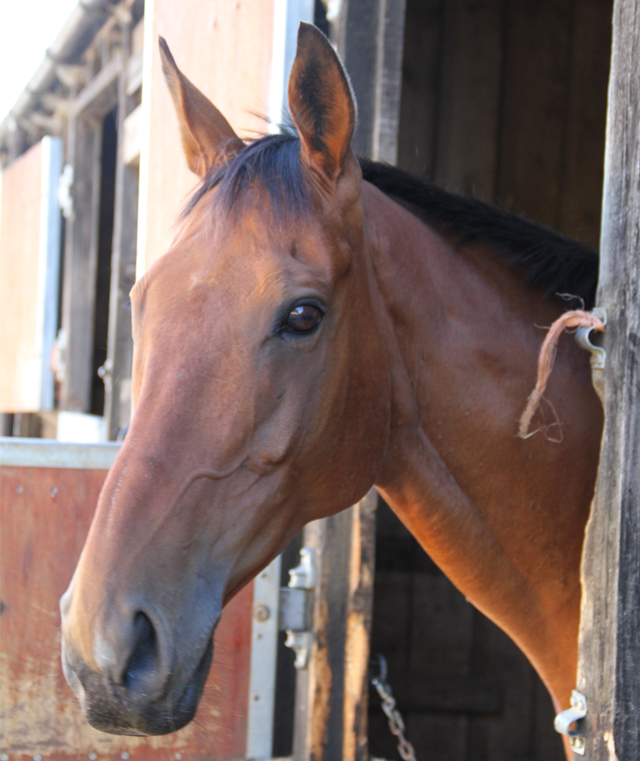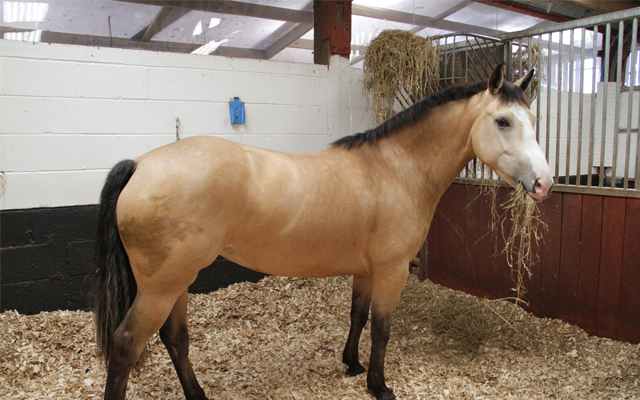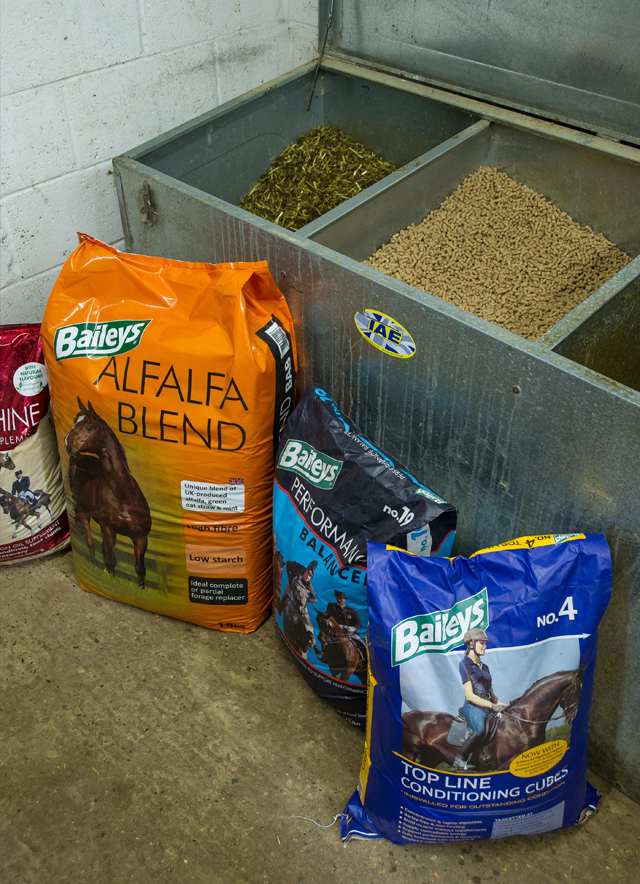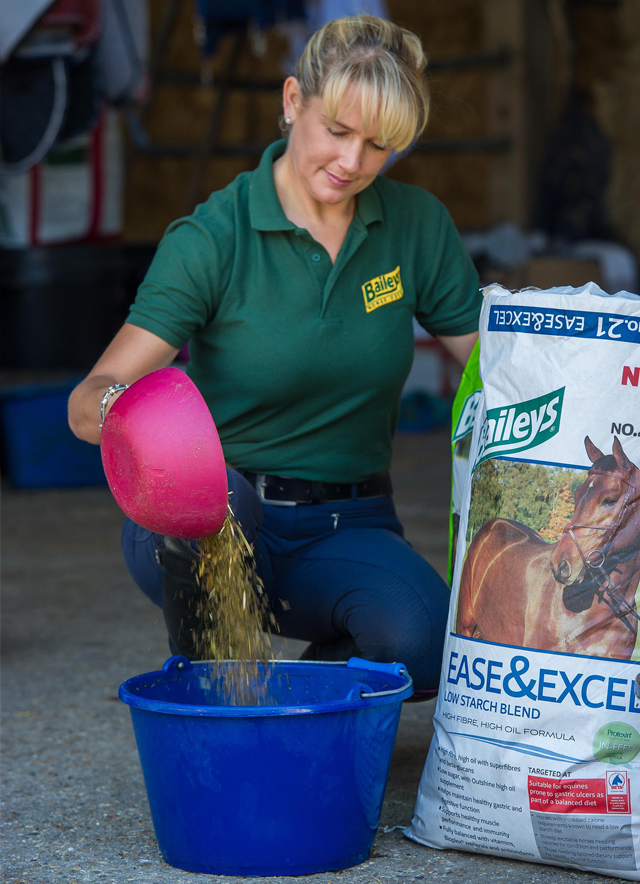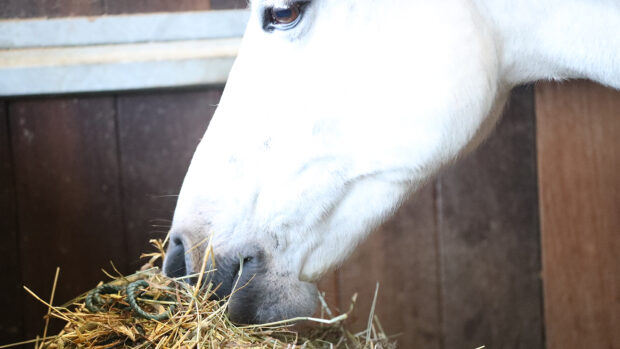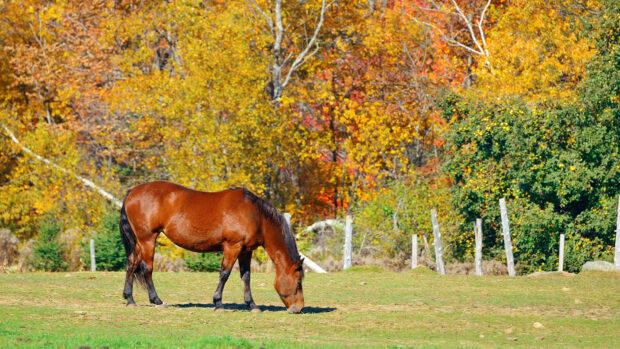Advertisement Feature
The role of correct nutrition in supporting healing, and a subsequent return to work or competition, should not be underestimated.
Vital Fibre
Even minor injuries can confine a horse to his stable for a couple of days so he must have access to plenty of forage to promote normal gut function and relieve boredom. With no access to pasture and a reduction in concentrate feed, the horse’s overall nutrient intake can drop significantly at a time when the body really needs nutritional support to aid healing. Baileys Lo-Cal or Performance balancer will make up the shortfall as they provide all the vitamins, minerals and quality protein the horse requires but without the energy that could cause behavioural and digestive upsets.
Feeding to Heal
Correct nutrition provides nutrients for tissue repair and supports healing. Amino acids, for example, are the building blocks of protein and components of all body cells. With the exception of alfalfa, the protein in forages is of insufficient quality to supply essential amino acids, so good quality compound feed or a balancer ensures the horse doesn’t go short.
Vitamins are essential for body functions and minerals are integral in cell and tissue structure and vital for the healing process. Maintaining intake of these important micronutrients will help also help preserve residual levels within the body, ready for the horse’s return to work. So, whilst injury is the last thing we’re thinking of at the start of the season, being ready to adapt your horse’s diet and support the healing process can help give him every chance to pick up where he left off.
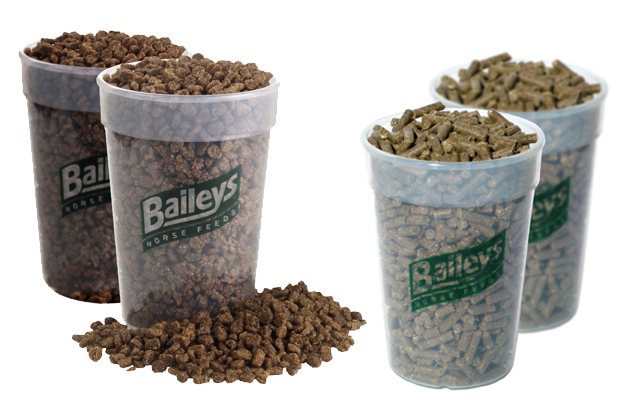 Changing The Horse’s Diet
Changing The Horse’s Diet
Abrupt dietary changes are best avoided but a drastic reduction to a fit horse’s concentrate ration is unavoidable if his workload is suddenly curtailed. Sudden changes can disrupt gut bacteria, resulting in loose droppings, colic or even laminitis. Feeding a “digestive enhancer”, like Baileys Digest Plus prebiotic, can help the bacteria adapt, thus reducing the risk of upsets.
For short term box rest, concentrates should be reduced and “top dressed” with Lo-Cal or Performance balancer to maintain nutrient levels. Alternatively, a balancer can replace compound feed for those horses who maintain condition on forage alone. Baileys Keep Calm is an ideal lower energy, low starch feed for those requiring some additional calorie intake, whilst non-heating Top Line Conditioning Mix or Cubes can be fed to resting horses who are poorer-doers.
Where starch intake must be kept to a minimum, for example in cases of laminitis or azoturia, oil is an excellent source of non-heating calories. Baileys Ease & Excel is a high oil, high fibre blend formulated to deliver high levels of calories and other nutrients, with minimal starch levels. It can be fed to horses prone to gastric ulcers and any horses who are stressy or fussy, especially when confined to the box.

